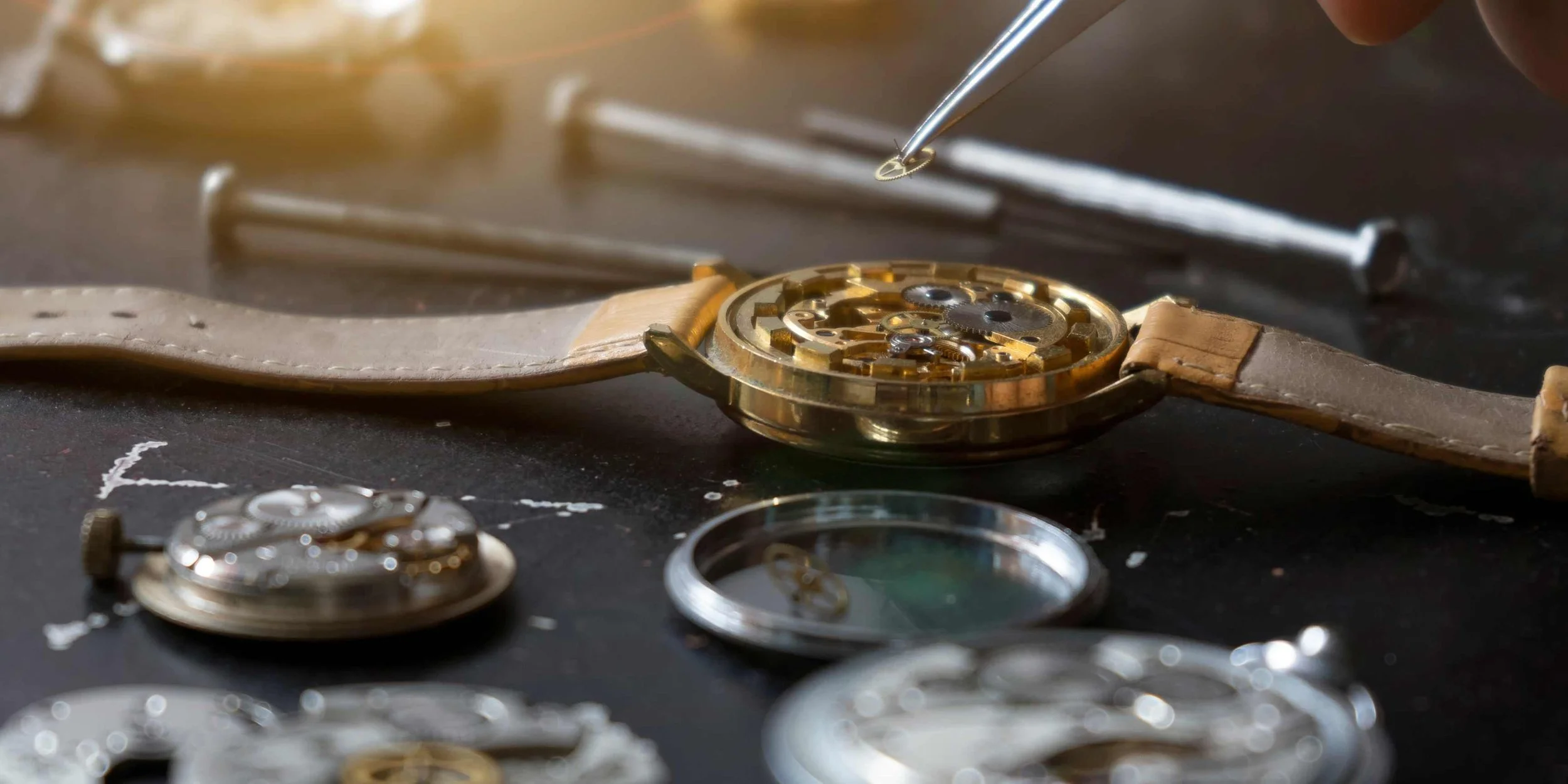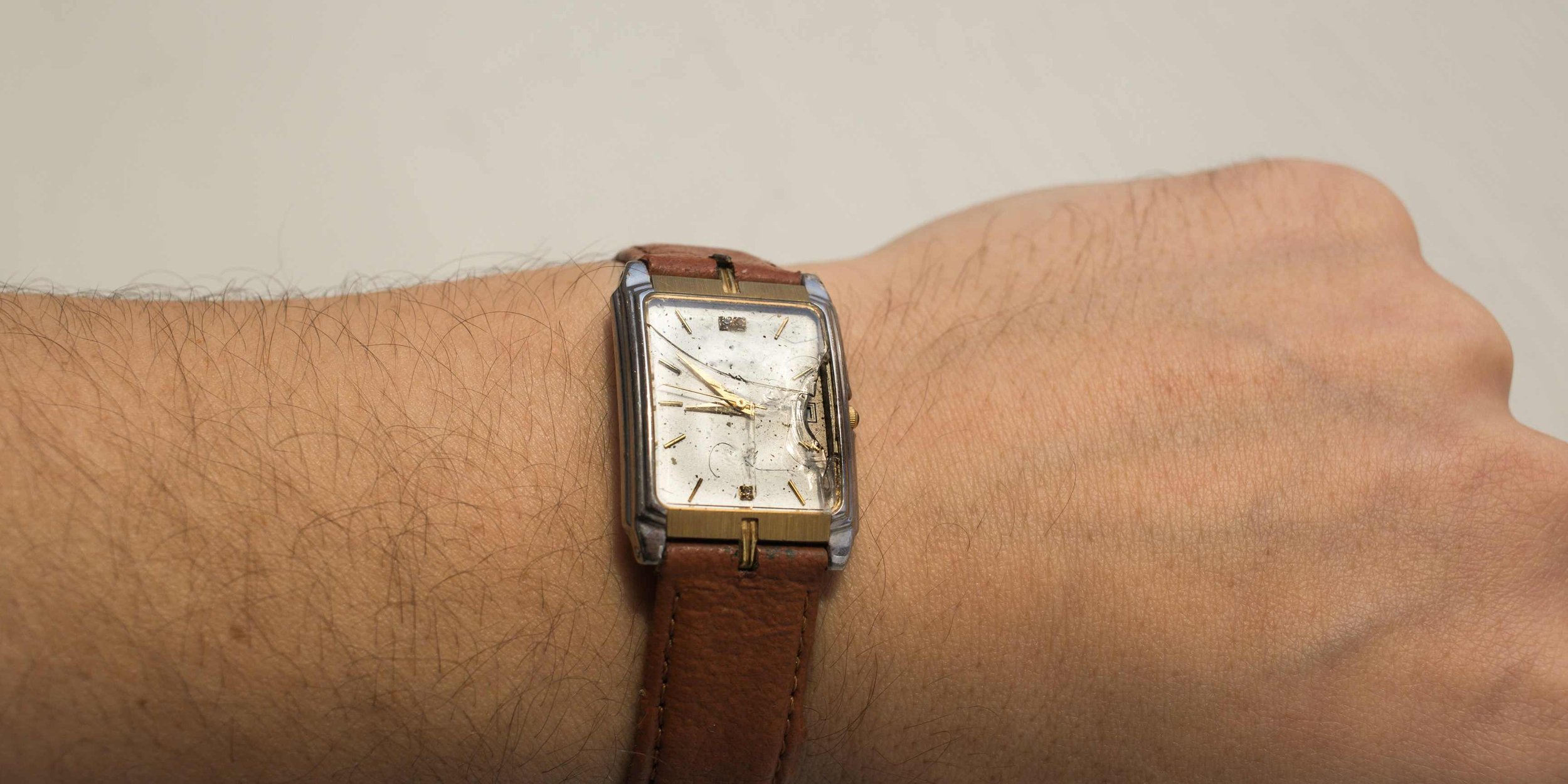Why Does My Watch Keep Losing Time?
Last updated on March 2025 by Huxley Mann.
Why does my watch keep losing time? Of course, even the best watches will sometimes lose time, which can be frustrating. But what is the cause? Although you might be concerned for your watch's well-being, it's pretty standard, and we'll explore a few possible reasons below.
Your watch needs a service.
Yes, if your watch is losing time consistently, it could be a sign that it's time for a watch service. Over time, watches can accumulate dust, dirt, and other debris that can impede there functionality. Additionally, regular wear and tear can cause parts to become worn or damaged, which can also affect the accuracy of your watch.
At AMJ Watch Repair, we recommend servicing your watch every 2-3 years.
(Find out the telltale signs that your watch needs a service)
You've knocked or damaged your watch.
If your watch is suddenly losing time, there is a possibility you've knocked or damaged your watch. Even a slight impact can cause damage to the delicate internal components of your timepiece, leading to issues with timekeeping and accuracy.
A professional watchmaker will be able to assess the extent of the damage and recommend the appropriate repairs needed to restore your watch's functionality. This may include replacing damaged parts, cleaning out the movement, or regulating the timekeeping mechanism.
You haven't been winding your watch correctly.
You might have damaged the winding mechanism of your timepiece, which would account for your watch losing time.
It's easy and convenient to wind a watch while it's still on your wrist. However, you risk twisting or pulling the winding stem at an awkward angle, which can cause damage to the stem or other parts of the movement. By taking your watch off before winding it, you have better control over the process and can ensure that you're not putting any undue stress on the delicate components of your watch.
Your watch has become magnetised.
It's incredible how many everyday objects in our homes contain magnets, including mobile phones, televisions, wireless headphones and speakers, coffee machines, jewellery with magnetic clasps, and more...
Watches can become magnetised through exposure to magnetic fields, which can affect the accuracy of the movement and cause it to lose time.
Why? because many of the components in a watch movement, such as the balance wheel and hairspring, are made of metal. When these components become magnetised, they may stick together or move out of their proper positions, causing the watch to lose its precision.
Exposure to water or moisture
Yes, exposure to water or moisture can cause a watch to lose time because water can damage the delicate components of a watch's movement, such as the balance wheel and hairspring, leading to inaccuracies in timekeeping.
In addition to affecting accuracy, water damage can also cause other issues with a watch's movement, such as rusting or corrosion of metal parts. If left unchecked, these problems could lead to more serious issues requiring costly repairs.
(We have a great blog post on what to do if your watch has been exposed to water or moisture)
Example of a watch's movement that has been exposed to moisture.
Extreme temperature changes
Extreme temperature changes can affect the accuracy of a mechanical watch's movement, causing it to slow down or speed up over time.
A transfer from excessive hot and cold temperatures can cause parts inside your watch to expand and contract, leading to water entering the dial and movement, causing damage. Heat can especially dry out the lubricant, creating friction on the gears, which will affect the timekeeping of your watch.
Low battery
If you're the proud owner of a Quartz watch, and your watch is losing time, there's an excellent chance that it requires nothing more than a simple watch battery replacement.
(Find out more about knowing when it's time to change your watches battery)
How long do watch batteries last?
The lifespan of a watch battery can vary depending on several factors, such as the type of battery, the watch's size, and usage. Generally, a standard silver oxide battery used in most quartz watches can last one to two years before needing replacement. However, some high-end watches may have more advanced batteries that can last up to five years or longer.
Should I have the dead battery removed from my watch?
Dead batteries should be removed as soon as possible, especially if you're planning to put your watch into storage. Over time a dead battery can corrode and leak over the internal components of your watch, causing damage and potentially rendering your timepiece unusable. In addition, if moisture has infiltrated the inner workings of the mechanism, this can accelerate the corrosion of the battery.
The best practice is to replace your watch's battery as soon as it runs out or starts showing signs of depletion.
Time for a watch battery replacement? Visit our London watch repair centre or send us your watch in the post.
Want to know why your wristwatch's time is not accurate?
Multiple factors can cause even the most well-maintained watches to deviate from exact timekeeping. If your watch keeps losing time, it might be time to reach out to a professional watch repair centre.
From Rolex to Patek, or OMEGA to Longines — Our watch repair shop covers an all-encompassing range of services to return your watch to showroom standard.
So start your watch repair today by posting your timepiece to us for a quote or by dropping by our watch repair shop in Hatton Garden, London.





